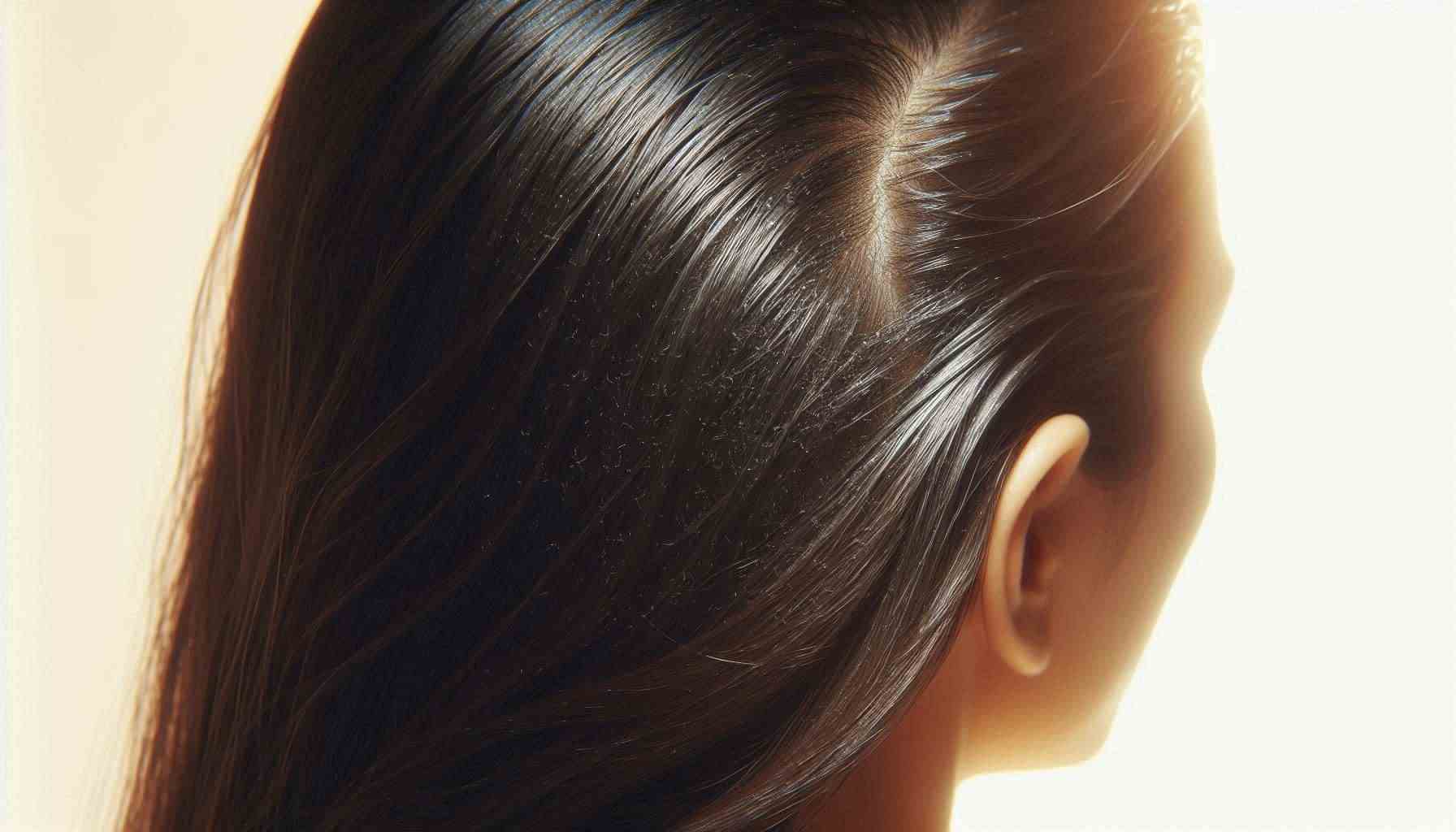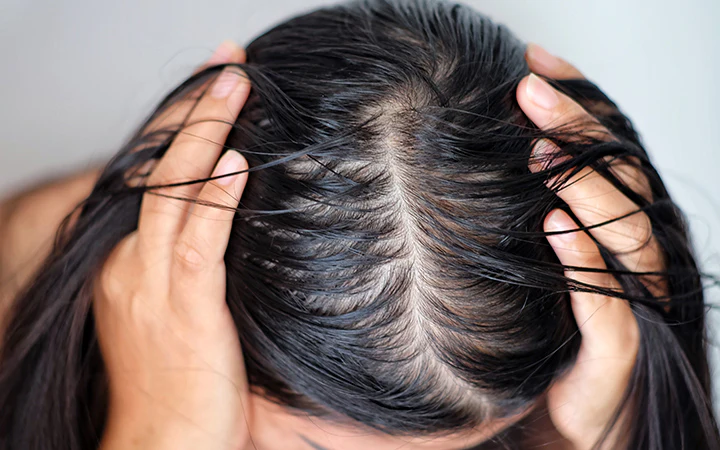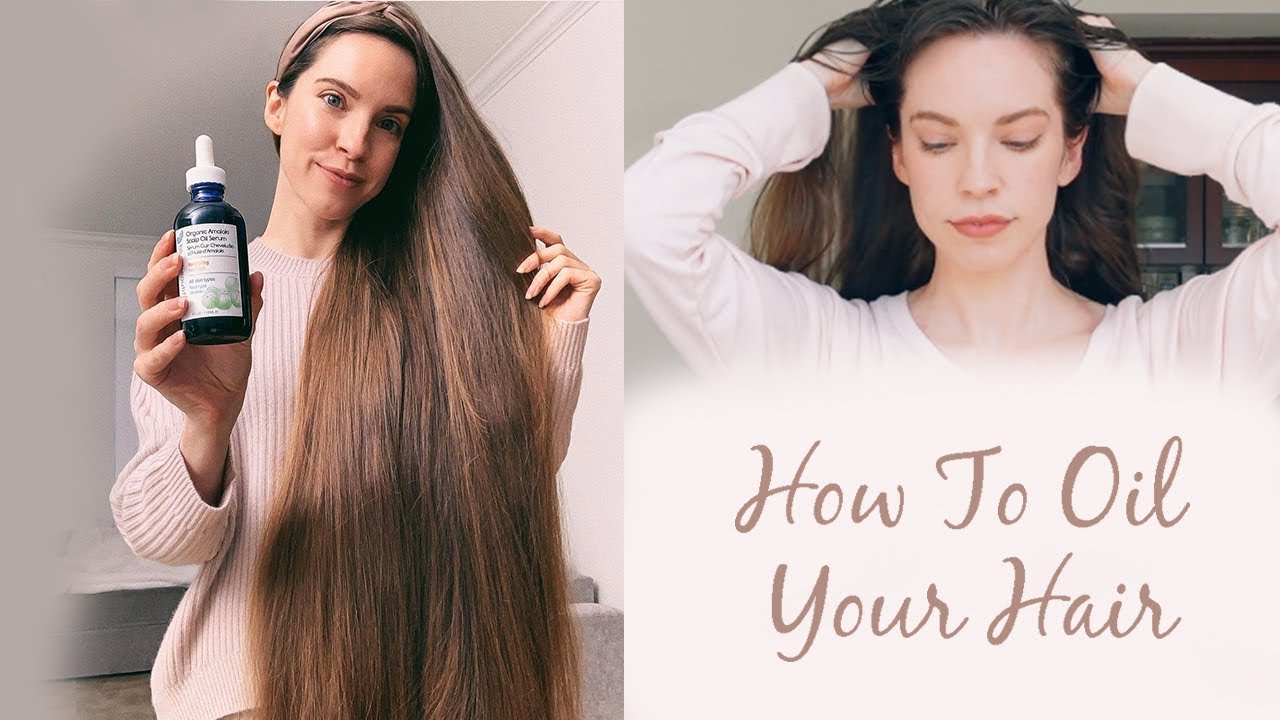Does Conditioner Cause Dandruff?
Dandruff is a common scalp issue that causes white or yellow flakes of dead skin to appear on your hair, clothes, and shoulders. It’s often accompanied by itching and scalp irritation. You’re not alone if you’ve ever wondered whether your conditioner might be causing or worsening dandruff.
The good news? Conditioner doesn’t directly cause dandruff. But how you use it and the type you choose can make a difference. Let’s explore how conditioners affect dandruff and what you can do to prevent it.
What is Dandruff?
Dandruff is caused by excess buildup of dead skin cells on the scalp. There are two main types:
- Dry Dandruff: Also known as pityriasis simplex capitis, this type produces dry, white or grayish flakes and often results from a dry scalp.
- Oily Dandruff: Also called pityriasis steatoides, oily dandruff happens when there’s an excess of scalp oil or sebum. This oil feeds a natural yeast on the scalp, Malassezia, causing greasy, larger flakes and itching.
Can Conditioner Cause Dandruff?
Conditioners are designed to make hair soft, shiny, and manageable by locking in moisture and reducing frizz. They contain ingredients like silicones, oils, and fatty alcohols that coat the hair shaft. While conditioner itself doesn’t cause dandruff, some conditioner-related habits can contribute to it:
- Applying Conditioner to the Scalp
Conditioner is meant for hair strands, not the scalp. When applied to the scalp, the conditioner’s heavy texture can make roots greasy, clog pores, and cause buildup, leading to itching, flaking, and dandruff-like symptoms.
- Leaving Conditioner Residue
Not rinsing conditioner thoroughly can lead to buildup on the scalp, which clogs pores and creates an environment that allows Malassezia (the yeast linked to dandruff) to thrive. This can cause inflammation, itchiness, and increased flakes.
- Removing Active Ingredients from Anti-Dandruff Shampoos
Anti-dandruff shampoos contain ingredients like zinc pyrithione or ketoconazole to control dandruff. Regular conditioners can wash away these active ingredients, reducing their effectiveness.
- Allergic Reactions to Conditioner Ingredients
Some conditioners contain fragrances, dyes, or preservatives, which can cause irritation, especially if you have sensitive skin. This irritation can lead to a condition called contact dermatitis, which causes redness, itching, and flakiness that looks similar to dandruff.
When Conditioner Can Help with Dandruff
Used correctly, certain types of conditioners can actually help improve dandruff:
- Moisturizing Dry, Frizzy Hair
A dry, under-moisturized scalp sometimes causes dandruff. Conditioners help moisturize dry hair, reduce breakage, and improve the hair’s ability to hold onto natural oils. This can prevent dryness, which may lead to dandruff.
- Reducing Scalp Sensitivity
Conditioners with anti-inflammatory ingredients, like aloe or tea tree oil, can help soothe the scalp, reducing irritation and flakiness.
- Balancing Sebum Production
Some conditioners are designed to control excess oil production, which can help if you have oily dandruff. Look for lightweight conditioners that don’t weigh down the hair and control scalp oiliness.
Choosing the Right Conditioner for Dandruff-Prone Hair
The type of conditioner you choose matters if you’re prone to dandruff. Here are some to consider:
- Leave-In Conditioners with Anti-Dandruff Agents
Certain leave-in conditioners contain anti-dandruff ingredients like zinc pyrithione or salicylic acid, which help control flakes. Some also contain ingredients like climbazole or ketoconazole, which fight Malassezia and reduce dandruff buildup.
- Glycosaminoglycan-Based Conditioners
Glycosaminoglycans (GAGs) are natural proteins found in skin and hair that can prevent Malassezia buildup. This type of conditioner may help reduce dandruff.
- Silicone-Based Conditioners
Silicone-based conditioners provide a protective layer that reduces flakiness and itching. However, they can lead to buildup over time, so use sparingly if your scalp is oily.
- Natural Conditioners with Ginger or Neem
Ginger and neem have natural anti-inflammatory and antiseptic properties. They can help calm an itchy, irritated scalp and reduce dandruff. Look for conditioners with these ingredients for a more natural approach.
- Fragrance-Free and Hypoallergenic Conditioners
If you’re sensitive to ingredients, opt for fragrance-free and hypoallergenic products to avoid irritation. These reduce the risk of contact dermatitis, which can worsen dandruff.
How to Use Conditioner Without Worsening Dandruff
Using conditioner carefully can prevent dandruff or make it worse. Here are some helpful tips:
- Apply Conditioner Only to the Hair Lengths
Focus conditioner on the ends of your hair. Avoid applying it directly to the scalp, which can clog pores and increase scalp oiliness.
- Rinse Thoroughly with Lukewarm Water
Make sure to rinse out all conditioner. Leftover residue can cause buildup, so take the time to rinse thoroughly.
- Use Conditioner in Moderation
You don’t need to use conditioner every time you wash your hair. Once or twice a week is often enough, depending on your hair type and needs. This helps prevent over-conditioning, which can lead to a greasy scalp.
- Choose the Right Conditioner Type
If you use an anti-dandruff shampoo, select a compatible conditioner that won’t interfere with its active ingredients. Avoid heavy conditioners that may counteract the shampoo’s effects.
- Consider a Patch Test for New Products
If you’re trying a new conditioner, do a patch test to check for any allergic reactions, especially if you’re prone to scalp sensitivity.
Tips to Avoid Dandruff
Apart from using conditioner wisely, there are a few other general tips to help keep dandruff under control:
- Use Anti-Dandruff Shampoo Regularly
Choose a gentle anti-dandruff shampoo and use it regularly to control flakes. Ingredients like zinc pyrithione and ketoconazole are effective at managing dandruff.
- Avoid Hot Water
Hot water can strip your scalp of its natural oils, leading to dryness and irritation. Opt for lukewarm water when washing your hair.
- Limit Hair Styling Products
Heavy styling products can build up on your scalp, clog pores, and worsen dandruff. Use them sparingly if you’re prone to flakes.
- Keep Your Scalp Clean
Regularly washing your scalp helps prevent buildup of dead skin cells, oil, and product residue that can cause dandruff.
Can Dandruff Go Away Completely?
Yes, it is possible to get rid of dandruff completely, but it depends on the cause. If your dandruff is due to a dry scalp or product buildup, a proper hair care routine and dandruff treatment can often eliminate it. However, if it’s due to a fungal infection or another skin condition, treatment may take longer and require medical supervision.
Final Thoughts
Depending on how they’re used, conditioners can both help and worsen dandruff. If chosen carefully, they can keep hair soft and manageable, reduce dryness, and even support anti-dandruff efforts. However, if applied directly to the scalp or not rinsed out properly, they can also lead to buildup, clog pores, and interfere with anti-dandruff shampoos.
To get the best results, choose a conditioner suited to your hair type and apply it only to the ends of your hair. With these simple steps, you can enjoy the benefits of a conditioner without worrying about dandruff.



